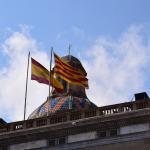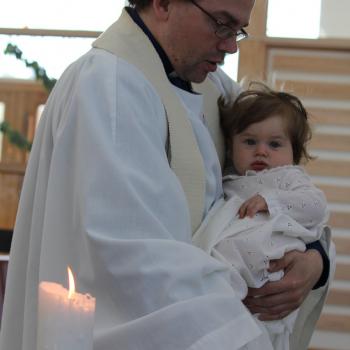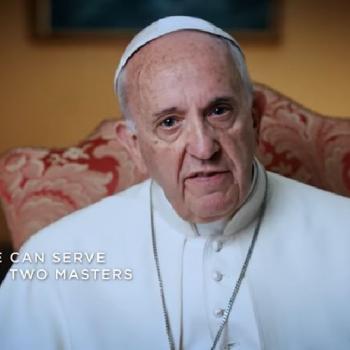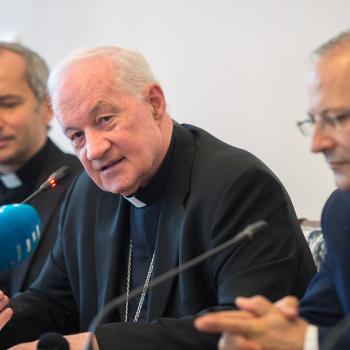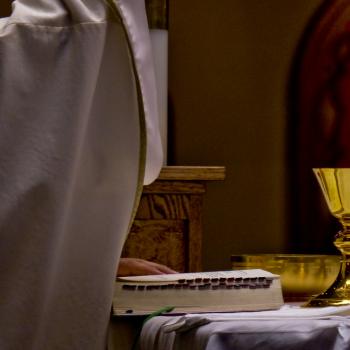Today on the blog we return to Spain, where we’ll look at some Church reactions to the news that broke last Friday, when the regional parliament of Catalonia voted to declare itself independent from Spain and the central government in Madrid replied by suspending its autonomy, elected leaders and police officials.
Archbishop of Barcelona: “My heart weeps”
Only a few prelates have so far spoken out on the new developments, and one of them has been the Archbishop of Barcelona, Cardinal Juan José Omella. At the “(Re)thinking Europe” conference on Friday, Omella said, for the situation, he felt “my heart weeps”.
“At this moment, as the pastor of Barcelona, I share the pain and the suffering of the people”, he added. “I want and ask of the Lord that he help us to avoid confrontation and to construct the future in peace”.
Tears and regret for the declaration of independence apart, Omella was also able to reflect on his positive experiences in the region, and perhaps to sound a note of cautious optimism. “After two years of being in the archdiocese of Barcelona”, the cardinal said, “I can say that I love deeply Barcelona and Catalonia, where they are marvellous people. Spain, I love you too, and I love the Europe to which we belong, and where I studied as a young man, both in France and in Belgium”.
Tweets from the spokesman of the Bishops’ Conference and the military bishop: “Unity prevails over conflict”
For his part, the spokesman of the Spanish Episcopal Conference, José María Gil Tamayo, took to Twitter to proclaim: “Our prayers and sorrow for the events of today. Respect for the rule of law and for the Constitution assure our living together in peace”. He was joined on the social network by the bishop of the armed forces, Juan del Rio, who wrote, echoing the words of Pope Francis: “Unity prevails over conflict. A message filled with hope in these sad hours for Spain. Pray for peace”.
Cardinals Blázquez and Osoro: “Christ encourages us not to build walls”
At an event in Valladolid on Saturday afternoon, the present of the Spanish bishops, the Cardinal Archbishop of that city, Ricardo Blázquez, admitted his “sadness for Catalonia’s declaration of independence” at the same time he reiterated his “support for the constitutional order… and its re-establishment”. “I ask God to give peaceful harmony to every citizen”, prayed Blázquez.
Also in Valladolid, the Archbishop of Madrid, Cardinal Carlos Osoro, referred briefly to the profound need to re-establish, after the punches and counter-punches of the regional and central governments in the last few days, a lasting “social reconciliation”. He later took to Twitter to write “Christ encourages us not to build walls, but to generate encounters and social reconciliation. In this moment, in Spain, with special insistency”.
Cardinal Sebastián: “Simplistic” attitudes on what is Spanish will have to change
Without a doubt, though, the most thorough and for that reason helpful comment of any Spanish bishop on the Catalonian declaration of independence last Friday has come from Cardinal Fernando Sebastián, the retired bishop of Pamplona and Tudela. Along written a few days before the final independence vote, the Cardinal’s insights are still worth repeating, especially when he opines that the “Catalan crisis” currently sending shockwaves throughout Spain is “a true institutional insurrection, directed by political power, accompanied and empowered from below by a widespread strong popular sentiment [that has been] previously cultivated”.
Of course interest, too, is the Cardinal’s view that the crisis is a political one as such “should be treated politically”. Words which would seem to go against the philosophy of Prime Minister Mariano Rajoy and the national ruling party PP, who have resolutely eschewed all attempts at dialog and negotiation in favor of judicializing the cause.
“Nationalisms, all nationalisms, have a protest at their base”, continues Sebastián. “It’s like the oldest child who leaves the house slamming the door. They leave because they feel mistreated, they don’t feel loved. But sometimes they don’t feel loved because previously they’ve been selfish, because they’ve thought that they have more rights than the rest, because they’re not satisfied with what they get at home, even though they’ve always got the same, and sometimes more than everyone else”. Attitudes that the Cardinal sums up as those of “playing the victim” – and a “selfish and greedy” one at that – in the hope of being left to live alone or left alone to live better.
Although “nationalism is rupture… like it or not” – and so much because “it tears the social fabric, plays people off against one another [and] divides families” – there are certain justifications for such a political perspective. Justifications that, however, aren’t present in the Catalan case, since the people of the region don’t suffer “serious collective injustices”, “domination” or “discrimination”.
“Ideological arguments aren’t good enough. We have to stick to realities”, warns the Cardinal in this sense: at the same time, though, that he recognizes that the crisis in Catalonia will mean a necessary change in “certain centralistic attitudes” in the rest of Spain. “Attitudes that are too simplistic, that confuse what is Spanish with what is Castillian”, he explains.


